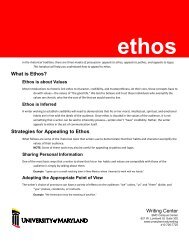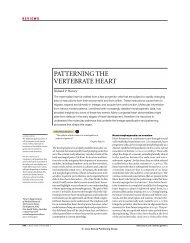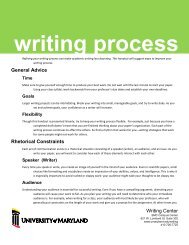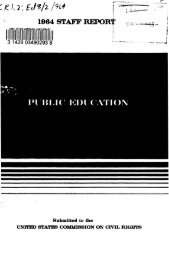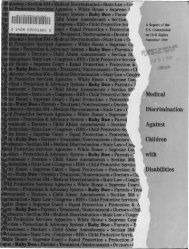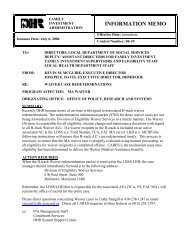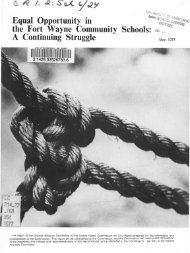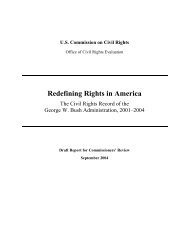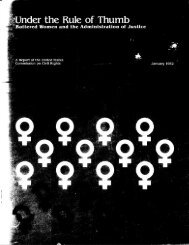Field Manual for 2013-2014 - University of Maryland School of ...
Field Manual for 2013-2014 - University of Maryland School of ...
Field Manual for 2013-2014 - University of Maryland School of ...
Create successful ePaper yourself
Turn your PDF publications into a flip-book with our unique Google optimized e-Paper software.
* Developmental life-cycle perspective<br />
1. Identifies the normal developmental stage <strong>of</strong> the client and the developmental tasks associated with<br />
that stage.<br />
2. Identifies constitutional fads that influence behavior.<br />
* Personality development<br />
1. Identifies the nature and source <strong>of</strong> anxiety and the characteristic ways people reduce anxiety.<br />
2. Identifies and assesses specific ego functions and ego defenses.<br />
3. Recognizes the specific adaptive techniques people develop in stressful environments.<br />
4. Identifies the coping and progressive <strong>for</strong>ces <strong>of</strong> the personality.<br />
5. Distinguishes between what is in conscious awareness and what is outside <strong>of</strong> awareness.<br />
6. Impact <strong>of</strong> early attachments on relationships.<br />
* Theories <strong>of</strong> psychopathology<br />
1. Views mental health and mental illness as a continuum, rather than as the presence or absence <strong>of</strong><br />
disease.<br />
2. Recognizes the psychological and socio-cultural factors in mental illness.<br />
3. Understands that socio-cultural factors influence the definition <strong>of</strong> and responses to mental illness.<br />
4. Understands the implications <strong>of</strong> the labeling process.<br />
5. Identifies dysfunction in the family and in other systems that relate to the mental illness <strong>of</strong> the client.<br />
6. Uses perspectives on psychopathology that reduce the distance between the worker and client.<br />
*Trauma<br />
1. Recognizes different types <strong>of</strong> trauma over the lifecycle.<br />
2. Understands the difference between interpersonal and impersonal trauma.<br />
3. Recognizes the effect <strong>of</strong> trauma on personality development and relationships.<br />
4. Identifies a range <strong>of</strong> evidence-based treatment approaches.<br />
D. Knowledge about the structure and dynamics <strong>of</strong> groups.<br />
1. Identifies the ways in which groups can be helpful to people.<br />
2. Is aware <strong>of</strong> the types <strong>of</strong> groups that can be useful in a clinical setting (e.g., socialization, education,<br />
therapy, activity, social action).<br />
3. Identifies group processes as they occur in client, staff and student groups (e.g., setting norms,<br />
subgroup <strong>for</strong>mation, cohesion, control, and decision making).<br />
4. Identifies phases <strong>of</strong> group development.<br />
5. Understands the use <strong>of</strong> programs as a tool in work with groups.<br />
6. Knows the issues and steps in organizing and starting a group.<br />
E. Knowledge about the structure and dynamics <strong>of</strong> families.<br />
1. Understands how the family organizes itself to accomplish its goals.<br />
2. Understands that the family contributes to and reacts to the presenting problem.<br />
3. Understands that individual change affects the family and that family change affects the individual.<br />
4. Understands communication patterns among family members.<br />
5. Recognizes the ways in which family interviews contribute to diagnosis and treatment.<br />
F. Knowledge <strong>of</strong> communication processes, including these <strong>for</strong> populations at risk.<br />
1. Describes her/his own communication style as well as that <strong>of</strong> the client<br />
2. Recognizes:<br />
a. Non-verbal and verbal communication.<br />
b. Incongruities between verbal and non-verbal communication.<br />
61



